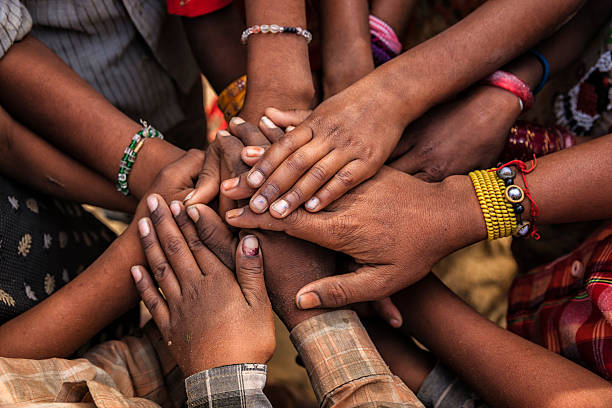Table of Contents
ToggleIfitedunu: A Comprehensive Overview

Ifitedunu, previously known as Ifite-Ukpo, is one of the six autonomous towns within the Dunukofia Local Government Area of Anambra State, Nigeria. The historical narratives and oral traditions of the Igbo people recount that Ifitedunu was the second son of Dunu, with Ukpo as the eldest, followed by Umunachi, Umudioka, and lastly Ukwulu, the only female. Together with Nawgu, these towns comprise the current Dunukofia Local Government Area, an ancient kingdom with a rich and powerful dynasty.
.IMAPA Certificate of Formation approved by the Texas Secretary of State as a non profit corporation on 01/31/2024.
Historical Background and Evolution
The dynasty of Dunukofia is renowned for its well-established organizational structures, internal leadership, and oversight mechanisms. Matters of ethics, morality, personal decorum, social responsibility, social justice, and the common good were traditionally managed by town elders, native chief priests, and other prominent local leaders.
Ifite, known for being both a trader and a farmer, was the second son of Dunu. Due to his close relationship with his older brother Ukpo, he was referred to as Ifite-Ukpo. However, the name Ifite-Ukpo often led to confusion, with many mistakenly associating it with Ukpo (then known as Ukpo-Akpu). To resolve this, the traditional ruler and the people of Ifite-Ukpo decided to change the town’s name. On December 28, 1991, Ifite-Ukpo was officially renamed Ifitedunu. The town comprises five villages: Obieze (formerly Abidudu), Ukpo-Mmili, Akwa, Umuanugwo, and Igbuala, each maintaining its historical significance.
Each village in Ifitedunu consists of six dominant clans, resulting in a total of 30 kindreds:
- Obieze: Adagbe, Eziocha, Irudoka, Umueze, Umunebo, Uruogu
- Ukpo-Mmili: Amaenye, Enuagu, Igbu-na-Obinagba, Iruezeoke, Iruogboo, Umudunu
- Akwa: Okpamese, Okpuloji, Umuabiaru, Umualam, Umueze, Umuonunu
- Umuanugwo: Adagbe, Irudonya, Eziagu, Igbuajaka, Igbuoji, Umunebo
- Igbuala: Igbezue, Iruezueukwu, Iru-Igbo, Irumoka, Ugwu-na-adagbe, Umuchigbe


Leadership and Governance
The governance of Ifitedunu has seen notable leaders who have significantly contributed to its development. The first known warrant chief was Eze Amadu Obinabo, succeeded by Eze Michael Obinabo, both from Igbuala village. After the death of Eze Michael Obinabo, there was a leadership gap until Igwe Engr. Augustine Ezechi Okoye was enthroned as Eze Dunu I in 1976. The town’s constitution, established in 2000, mandates that the Igwe, or Royal Father, is a qualified “first citizen” who serves for life.
The current traditional ruler is His Royal Majesty Igwe Dr. Chukwuemekalum Alex Ilouno, a medical practitioner and legal professional from Akwa village. He, along with Associate Prof Uchenna Stephen Ufoaroh, the elected President General, currently leads Ifitedunu. The President General, who serves as the administrative head, is elected every four years, ensuring democratic governance alongside traditional authority.


Prominent Figures from Ifitedunu
Despite its relatively small size, Ifitedunu has produced numerous prominent individuals who have made significant contributions in various fields:
• The Most Rev. Godfrey Mary Paul Okoye: First Bishop of Port Harcourt and later Bishop of Enugu.
• Chief Zacchaeus Dibiaezue: Commissioner of Finance under Mr. Ukpabi Asika.
• Engr. Mark Okoye: First Administrator of Abuja, the Federal Capital Territory.
• Pastor Ben Akabueze: National Budget Director and former three-term Commissioner for Economic Development in Lagos.
• P-Square (Peter and Paul Okoye): Renowned musical duo.
• Rev. Dr. Fr. Edwin Obiorah: First Nigerian Catholic priest admitted into the inner bar and elevated to the rank of Senior Advocate of Nigeria.
These individuals have brought honour to Ifitedunu, highlighting the town's potential and talent on national and international stages.
Dr. Simon Akwali Okafor, the late Catholic Bishop of Awka, Nigeria, was born on November 16, 1934, in Ifitedunu, Dunukofia Local Government Area of Anambra State. His ecclesiastical career began with his ordination as a priest on July 21, 1963, at the age of 28, serving in the Archdiocese of Onitsha. On March 6, 1992, at 57, he was appointed Auxiliary Bishop of Awka.
Bishop Okafor was celebrated for his humility, simplicity, generosity, and dedication to his faith and community, leaving a significant legacy in the Catholic Church in Nigeria. His passing was deeply mourned by many.
Cultural Heritage and Festivals
The people of Ifitedunu deeply cherish their cultural heritage, celebrated through various festivals and traditions. One of the most significant events is the “Orira Iwaji” (New Yam Festival), held annually on September 23. This festival is a time for thanksgiving, unity, and cultural expression, bringing together the people of Ifitedunu, their in-laws, relatives, and well-wishers to celebrate the harvest of the new yam and the fruits of their labour.
The 2022 Orira Iwaji Festival is particularly significant, as it represents a concerted effort to foster unity and peace within the community. Igwe Dr.Alex Chukwuemekalum Ilouno, the Ezedunu Ifitedunu, has called on the people to transcend personal animosities and work towards positive peace. By coming together to celebrate their rich cultural heritage, the people of Ifitedunu are laying the foundation for a united and prosperous future.
The Quest for Unity and Progress
The people of Ifitedunu, known for their enterprise and peaceful nature, strive for unity and progress. They recognize that true development can only be achieved through harmony and collective effort. The annual Orira Iwaji Festival serves as a vital cultural event aimed at fostering unity and peace. By celebrating their heritage and working towards reconciliation, the people of Ifitedunu are taking significant steps towards creating a community that values unity, peace, and development.


Long Live Ifitedunu!
The illustrious, highly enterprising, and peace-loving people of Ifitedunu continue to work towards a brighter future, grounded in their rich history and cultural heritage. Through unity, collective effort, and a commitment to progress, Ifitedunu stands as a testament to the enduring spirit and resilience of its people.
Long Live Ifitedunu! Long Live Anambra State! Long Live the Federal Republic of Nigeria!
